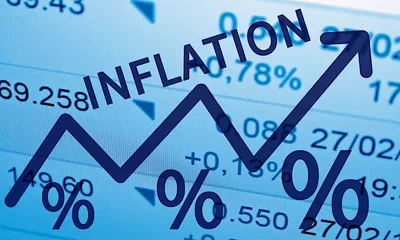The International Monetary Fund (IMF) announced it has approved Nigeria’s request for “emergency financial assistance” of $3.4 billion under its Rapid Financing Instrument (RFI). This is the first time in history that Nigeria will be obtaining a loan from the IMF.
In a press release issued by the IMF, it explained that “the near-term economic impact of COVID-19 is expected to be severe, while already high downside risks have increased. Even before the COVID-19 outbreak, Nigeria’s economy was facing headwinds from rising external vulnerabilities and falling per capita GDP levels. The pandemic—along with the sharp fall in oil prices—has magnified the vulnerabilities, leading to a historic decline in growth and large financing needs” buttressing the urgent need for a loan for Nigeria.
Nigeria had approached the IMF over a month ago seeking financial assistance to help the current meet its balance of payment needs. The IMF also recently approved a loan of $ 1billion for Ghana to help fight the Covid-19 virus.
The Nigerian Economy faces a double whammy from the falling crude oil prices and the Covid-19 pandemic. As a result, most analysts have predicted a slip back into recession and one that could top the 2016 recession that lasted for almost a year. This time, the fall in oil prices has had an immediate impact on government revenues while the COVID-19 pandemic has hit hard on the private sector due to the lockdowns.
The IMF recognizes this risk and has made it clear in some of its recent pronouncements. Earlier in the month, it projected that Nigeria was heading to a recession, its worst recession in three decades, as it expects the nation’s economy to recede by 3.4% in 2020. This realization has led to the approval of the $3.4 billion loans.
This statement appears to confirm that there are moves by the central bank to float the naira and unify the exchange rate across all markets. This move is not a surprise considering that IMF loans typically attract strings such as hard policy reforms such as devaluation, floating currency, and removal of subsidies.
This is perhaps why Nigeria hasn’t obtained loans from the IMF in years allowing multiple governments to continue with economic policies that require less accountability and scrutiny but big on subsidies and capital controls. The institution is known for asking for strings when it comes to the aid of ailing countries.
It was gathered that amidst the Covid-19 situation. However, Nigeria may need more than $3.4 billion from the IMF and bond buyers making it inevitable that the currency will be floated.
Recall, the CBN in March devalued (adjusted) the naira from N305/$1 to N360/$1 in the official market where the government converts forex from crude in exchange for Naira from the CBN.
It then moved the rate at which it sells forex in the Bureau De Change to N380/$1 from N360/$1. Since then, transaction volumes have crashed in the IFEX market where forex is traded as investors react to the Covid-19 lock-down.
The black market where the exchange rate is also sold crashed to as high as N460/$1 this week as dollar scarcity persisted in the market.

 Health6 days ago
Health6 days ago
 Entertainment1 week ago
Entertainment1 week ago
 Crime6 days ago
Crime6 days ago
 Comments and Issues1 week ago
Comments and Issues1 week ago
 Football1 week ago
Football1 week ago
 Latest7 days ago
Latest7 days ago
 Comments and Issues1 week ago
Comments and Issues1 week ago
 Comments and Issues1 week ago
Comments and Issues1 week ago

